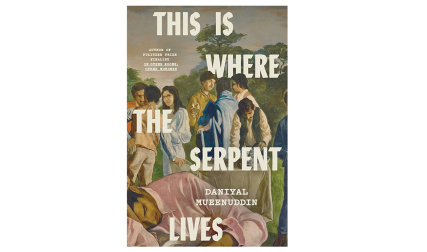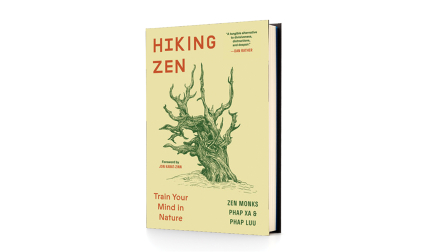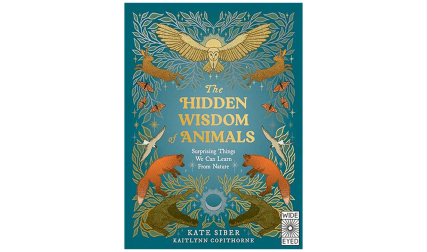Seuss scholar Charles Cohen collects seven rarely seen stories by Theodor “Dr. Seuss” Geisel ’25 that were originally published in magazines between 1948 and 1959 in The Bippolo Seed and Other Lost Stories (Random House).
Class president and co-executive editor Leo Caproni Jr. ’42 gathered together a collection of profiles detailing classmates’ involvement in World War II—91 percent of the class served—plus a foreword from former Dartmouth President James Wright in Dartmouth at War (self-published).
Tony- and Pulitzer Prize-winning author Frank Gilroy ’50 follows a lake community of both year-round and seasonal residents in Lake (Kindle).
Lynmar Brock Jr. ’55, Tu’56, a former U.S. Navy officer, tells a love tale between a U.S. naval officer and a beautiful French woman in his third novel, Geneviève (CreateSpace).
Culver Modisette ’50 tells the story of Quanah Parker, who in the late 1800s rose to lead the Comanche, Kiowa and Cheyenne tribes against the U.S. cavalry, in Honored Enemy (PublishingWorks)
Brock Brower ’53, who has written for Esquire, The New York Times and Harper’s, traces the making of a horror movie in Hollywood in The Late Great Creature, nominated for a National Book Award in 1971 and reissued this year by Overlook Press.
Kevin G. Lowther ’63—who served as a Peace Corps teacher in Sierra Leone from 1963 to 1965 and then helped found Africare, a humanitarian organization supporting development and relief programs throughout Africa—follows the story of a West African enslaved as a boy who eventually returned to his homeland to found a settlement for freed slaves in The African American Odyssey of John Kizell: A South Carolina Slave Returns to Fight the Slave Trade in His African Homeland (University of South Carolina Press).
Robert Bell ’67, the Frederick Latimer Wells Professor of English at Williams College, discusses the clowns and fools in Shakespeare’s works in Shakespeare’s Great Stage of Fools (Palgrave Macmillan).
Former Hofstra English professor G. Thomas Couser ’68 showcases memoirs as a genre and offers instruction on this popular form of autobiography in Memoir: An Introduction (Oxford University Press).
R. Barton Palmer ’68, the Calhoun Lemon Professor of Literature at Clemson University, considers the ways in which Alfred Hitchcock adapted and transformed a variety of literary works—novels, plays and short stories—into film in Hitchcock at the Source: The Auteur as Adapter (SUNY Press).
Don MacMannis ’70 and his wife, Debra, directors of the Family Therapy Institute of Santa Barbara, California, outline 10 qualities that define successful families in How’s Your Family Really Doing? 10 Keys to a Happy Loving Family (Two Harbors Press).
Wharton M.B.A. graduate John Cioffi, Adv’75, a business coach and partner in GoalMakers Management Consultants, offers a clear, focused tactical manual of what business managers need to know to make their organizations work well in 6 Habits of Highly Successful Managers (Career Press).
Carl Little ’76 explores the life and art of Eric Hopkins, known for his work with glass and aerial panoramas of Maine islands, in Eric Hopkins: Above and Beyond (Down East Books).
Longtime Vanity Fair contributing editor Michael Shnayerson ’76 helps singer and actor Harry Belafonte tell of the struggles, tragedies and triumphs he experienced on the way to recording the first album that sold more than 1 million copies in My Song: A Memoir (Knopf).
Co-author Shirley Spence ’77 provides advice to philanthropic leaders, fundraisers and nonprofit executives on the art and science of generating much-needed resources in Getting to Giving: Fundraising the Entrepreneurial Way (Timberline).
Entrepreneur and start-up executive William Robbins ’83 offers advice on life-science and technology spin-offs from academic and biomedical research centers in Seed-Stage Venture Investing: An Insider’s Guide to Start-Ups for Scientists, Engineers, and Investors (West, Aspatore Books).
Michael Urban ’78 creates a rousing adventure revolving around a search for lost treasure in the jungles of Panama in his first novel, Drake’s Coffin: A Zach Colt Adventure (IGTBA Enterprises).
Sean O’Keefe ’80, by day a bankruptcy lawyer, worked for four years on a thriller revolving around the discovery of an obscure legal right to a billion-dollar property in Helius Legacy (Live Oak Press).
Writing coach Christina Katz ’88 offers advice on every aspect of a writing career, from getting organized to connecting with an audience, in The Writer’s Workout: 366 Tips, Tasks, & Techniques From Your Writing Career Coach (Writers Digest Books).
Caryn Ginsberg ’83, a consultant for animal rights organizations such as the Humane Society of the United States and the ASPCA, examines why some animal protection efforts are successful while others fail in Animal Impact: Secrets Proven to Achieve Results and Move the World (Priority Ventures Group).
Journalist and biographer Jim Newton ’85 introduces Dwight D. Eisenhower not as the babysitter-in-chief, as critics called him, but as a shrewd, meticulous and peaceful leader who refused to use the atom bomb, ground down Joseph McCarthy, and lifted the country from recession in Eisenhower: The White House Years (Doubleday).
Brian Hicks ’87 details his experience as a young black employee who encounters racism at the tradition-bound corporation that he loves in Manhattan Prometheus (CreateSpace).
John Christmas ’90, a former banker in Latvia who was ejected from that country for blowing the whistle on fraud, explores the social and philosophical problems of a society in which democracy has degenerated into a nightmare of seized assets and enslaved entrepreneurs in his first novel, Democracy Society (CreateSpace).
Elementary school teacher and librarian Sara Leach ’93 crafts an adventure tale about a 12-year-old who embarks with her two cousins on a hiking trip to a remote lake in British Columbia in Count Me In (Orca Book).
Nero and Shamus Award-winning author Brad Parks ’96 delivers the third book in his series featuring investigative reporter Carter Ross with The Girl Next Door (Minotaur Books).
Tony Jones ’90, M.Div., the theologian-in-residence at Solomon’s Porch in Minneapolis, Minnesota, researched eight “emerging church” congregations for a study into the ecclesiology of the movement in The Church Is Flat: The Relational Ecclesiology of the Emerging Church Movement (JoPa Productions).
Brett Wilson ’92, associate professor of English at the College of William & Mary, argues that women’s performances on the British stage during the 18th century catalyzed political bonding in A Race of Female Patriots: Women and Public Spirit on the British Stage, 1688-1745 (Bucknell University Press).
Nina Godiwalla, Adv’04, founder of leadership training firm MindWorks, draws on her experience at Morgan Stanley for Suits: A Woman on Wall Street (Atlas), which The New York Times describes as The Devil Wears Prada of investment banking.



